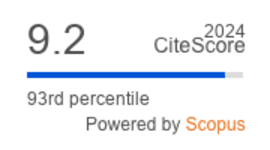Toxicological Review of Anticancer Plants Used in Traditional Medicine in Morocco
DOI:
https://doi.org/10.36877/pmmb.a0000328Abstract
In Morocco, traditional medicine utilizes many toxic plants for cancer treatment, despite a lack of scientific evidence supporting their effectiveness. Further research may be able to explore and discover the potential therapeutic effects of these plants' bioactive molecules with antioxidant and anticancer properties. Based on our review, we have determined that the 13 plants under examination possess various pharmacological and biological activities due to their diverse phytochemical composition. Despite their toxicity, these plants have a history of traditional use in Morocco for treating multiple diseases. Further research, including preclinical and clinical trials, should be conducted to investigate the potential therapeutic benefits of these plants. Moroccan cuisine commonly incorporates gruels, herbal drinks, and spicy beverages, which possess significant health benefits, including chemo-preventive properties and natural inhibitors against certain infections. These properties may aid in reducing the incidence of cancer and potentially have therapeutic effects in various human pathologies when consumed in appropriate amounts and in combination with a healthy lifestyle.
Downloads
Additional Files
Published
How to Cite
Issue
Section
License
Copyright (c) 2023 Soufiane Drioua, Abha Cherkani-Hassani, Otman El-Guourrami, Mouna Ameggouz, Ahmed Zahidi, Abdelhakim Bouyahaya, Sayyed Ibrahim Shah, Yaser Mohammed Al-Worafi, Long Chiau Ming, Hanane Benzaied, Anass Doukkali

This work is licensed under a Creative Commons Attribution-NonCommercial 4.0 International License.
Author(s) shall retain the copyright of their work and grant the Journal/Publisher right for the first publication with the work simultaneously licensed under:
Creative Commons Attribution-NonCommercial 4.0 International (CC BY-NC 4.0). This license allows for the copying, distribution and transmission of the work, provided the correct attribution of the original creator is stated. Adaptation and remixing are also permitted.

This broad license intends to facilitate free access to, as well as the unrestricted reuse of, original works of all types for non-commercial purposes.
The author(s) permits HH Publisher to publish this article that has not been submitted elsewhere.



.png)

.jpg)
